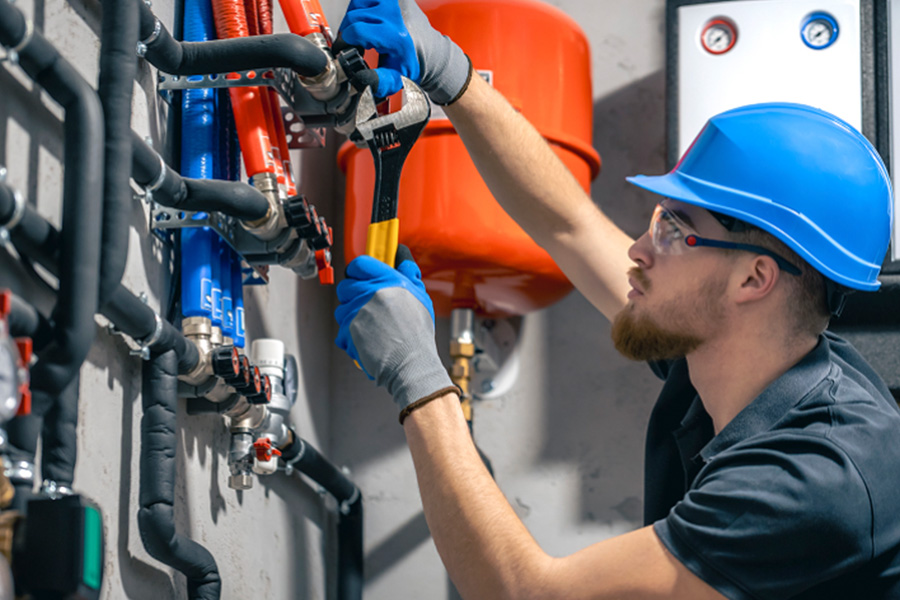Safe water access is essential for maintaining public health across residential, commercial, and industrial settings. Contaminants in the water supply—ranging from sediments and heavy metals to microbial threats—can have long-term health impacts if left unaddressed. Filtration systems play a crucial role in eliminating these impurities before industrial use. By reducing exposure to harmful substances, modern filtration helps lower health risks while ensuring the safety of everyday water usage.
Improving Water Transparency and Accountability
Access to clean water depends heavily on accurate monitoring. A water quality analyzer enables consistent assessment of key parameters such as pH levels, turbidity, chlorine, and dissolved solids. By integrating real-time data into maintenance or production decisions, organisations can respond effectively before contaminants reach users. This capability promotes accountability in water management and ensures standards are upheld consistently.
Supporting Regulatory Compliance and Certification
Local and international regulations require strict monitoring of water safety, especially in industries like food and beverage, pharmaceuticals, and manufacturing. Water filtration systems and analysers are vital tools in helping businesses comply with health codes and water quality benchmarks. Non-compliance with these standards may lead to enforcement penalties, workflow interruptions, or harm to an organisation’s reputation. By implementing appropriate filtration and measurement technology, facilities can pass inspections more reliably and maintain uninterrupted operations.
Enhancing System Efficiency and Resource Use
Water filtration systems contribute significantly to reducing sediment build-up in plumbing and appliances. Cleaner water minimises the corrosion and blockage that lead to mechanical inefficiency or equipment failure. Likewise, water quality analysers allow operators to detect early signs of scale formation, chemical imbalance, or microbial activity, making preventative action possible. This optimises energy and resource use across systems, reducing repair frequency and extending the lifespan of infrastructure.
Elevating Residential Water Experience
While industrial use dominates the conversation, household water quality remains equally vital. In Singapore, residents rely on under-sink or whole-house filtration to safeguard against pollutants. Systems such as the 3M water filter in Singapore are designed to provide safe drinking water by removing chlorine, lead, and microbial contaminants. Clearer, odour-free water improves taste, promotes health, and reduces the need for bottled alternatives, encouraging sustainability.
Facilitating Data-Driven Maintenance
Advanced water quality analysers allow for digital tracking of water metrics, enabling data collection over time. This information supports predictive maintenance strategies where servicing is conducted based on actual water conditions rather than pre-set intervals. As a result, users benefit from a more efficient maintenance schedule, avoiding unnecessary costs or reactive system shutdowns. It also assists in long-term planning for system upgrades and performance improvements.
Enabling Sector-Specific Solutions
Each industry requires a different water quality profile. For example, the semiconductor industry demands ultra-pure water, while agricultural applications may prioritise mineral content. Water quality analysers help tailor treatment approaches based on precise requirements. Likewise, water filtration systems can be selected according to the contaminants most likely present in a specific water source. Customisation based on analysis ensures more accurate and effective outcomes across sectors.
Enhancing Environmental Sustainability
Efficient water filtration and monitoring directly contribute to sustainability goals. By removing the need for bottled water and reducing chemical discharge into waterways, these technologies minimise environmental impact. These analysers track pollution and support water conservation. In urban settings like Singapore, where water reuse and recycling are key parts of the supply strategy, maintaining high water quality is central to long-term environmental stewardship.
Learn More: The Ice Cold Truth: The Importance of Water Filtration in the Food and Beverage Industry
Minimising Downtime in Critical Operations
Downtime caused by water quality failure can halt production and cause significant financial losses. Real-time analysis using a water quality analyzer allows teams to make quick adjustments to maintain acceptable parameters. This real-time responsiveness, when paired with reliable filtration, ensures that water-dependent processes remain uninterrupted. For sectors where water is a key ingredient or cooling medium, consistency and reliability in quality cannot be compromised.
Reinforcing Consumer Confidence and Brand Trust
In a market where transparency and quality matter, businesses that invest in effective water filtration and monitoring strengthen their credibility. Whether supplying water for consumption or production, showing a clear commitment to safety and regulatory alignment builds trust with stakeholders. Systems that actively improve water standards reflect an organisation’s responsibility to its clients, workforce, and the wider community.
For more information about water filtration solutions, contact Ansac Technology today.


